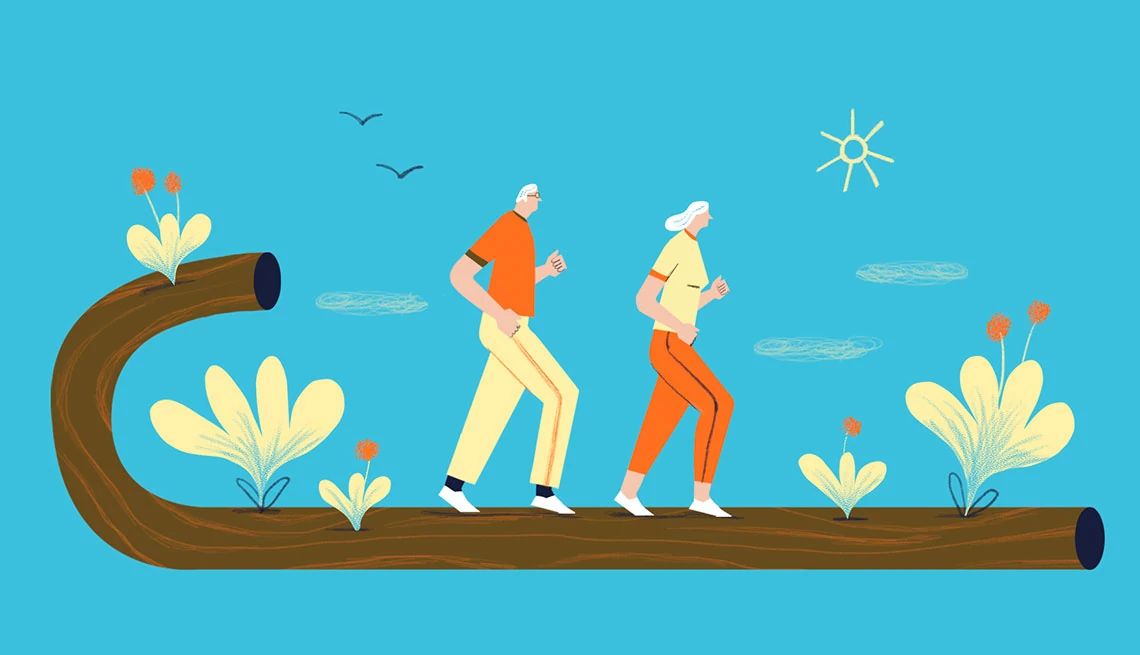AARP Hearing Center


Welcome to Ethels Tell All, where the writers behind The Ethel newsletter share their personal stories related to the joys and challenges of aging. Come back each Wednesday for the latest piece, exclusively on AARP Members Edition.
We recently had dinner in a restaurant with former neighbors whom we hadn’t seen in about eight years. When we got there, I hastily scanned the room for them and texted, “Hey, we’re here! Are you?”
Oh, they were there all right; they were just unrecognizable to me. Between when I last saw them years ago and that night, they had aged considerably. The woman sported completely gray hair, and her husband traveled with a cane. I couldn’t help but notice how hunched over she was when she rose to her feet to hug me, using the table for support. Her husband immediately cupped his hand over his right ear and leaned in, directing my husband to sit on his “good side” so he could hear him.
But it wasn’t their physical changes that I reacted to. It was the litany of their ailments we heard all about over dinner. Our friends’ life together consists largely of going to doctors and having medical tests.
They expressed amazement that neither my husband nor I has (yet) needed cataract surgery. Arthritis has plagued them, we were told, and his foot pain from gout curtails their ability to even take walks together. They prattled off a laundry list of health problems that come with older age: high blood pressure, prediabetes, irregular heart rhythms, necks that won’t turn, sciatica that keeps him up at night and osteoporosis that has caused her back to curve.
Diets have been restricted because of kidney issues, a wonky prostate, one hip replacement, and next up is a knee. The newest problem — difficulty swallowing — was scheduled to be checked out by a specialist next week. “We always see the best doctors — the specialists,” the wife explained.
Yes, that was their car in the handicapped parking spot near the restaurant’s front door. And no, the only traveling they’ve done since before the pandemic has been a couple of road trips to see their grandkids.
“But we stay in hotels,” we were told, “because we don’t want to wake anyone up when we have to use the bathroom in the middle of the night.”
My husband and I get it. We understand that as we age, body parts wear out — and often in painful ways. Some of us are born with good genes that help us evade disease; some of us aren’t. Some of us pay attention to what we eat; many of us don’t. Some of us have incorporated exercise into our lives, and others wouldn’t recognize an exercise mat if they tripped and fell over it. I come from a family where the women outlive the men by decades and every woman on both sides of my gene pool has celebrated birthdays well into their late 90s.






























































You Might Also Like
Can a Sexless Marriage Be Saved?
A man considers intimacy outside of marriage. And a woman wonders if it is reasonable to eliminate it from her relationship
My Husband Cheated. What I Did About It May Surprise You
In this Ethels Tell All essay, author Jodie Utter shares the aftermath of an affairHere’s the Lowdown on How to Store All Your Passwords
Overwhelmed by advice? Ed Baig sorts out the optionsRecommended for You